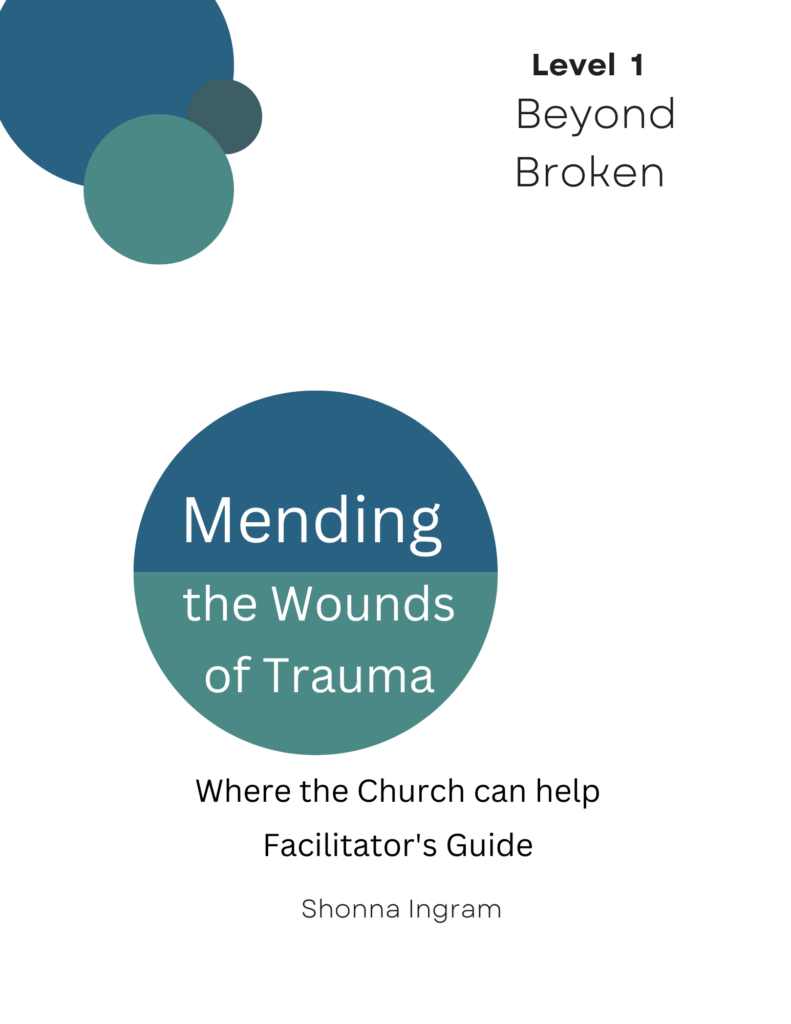Mending the Wounds of Trauma: Restore Foundation

Objective:
In Restore Foundation training, we guide participants through a journey of walking people through grief, laments, and the crucial process of forgiving themselves and others. This is a foundational stage where we focus on building the core pillars of emotional healing, which are necessary for the restoration of individuals dealing with trauma.
Training Prerequisites
- Required Reading: Beyond Broken: A Church’s Guide to Trauma and Growth.
- This will provide an overview of trauma, healing, and how communities can come together to foster growth. Key concepts from this book will be referenced throughout the training program.
Level 1: Initial Training
- Personal Experience in Group Work:
- Participants must complete at least one group session themselves as participants (this will be part of the cohort). This allows you to start your personal journey toward understanding how post traumatic growth works.
- Trauma Education:
- Introduction to Trauma: Trainees should develop an understanding of what trauma is, its impact on individuals and communities, and the necessity of working in community settings to address trauma effectively.
- This section will include video lectures, articles, and discussions that explain:
- How trauma manifests emotionally, mentally, and physically.
- The psychological stages of grief and forgiveness.
- Practice in Group Facilitation:
- Role-playing sessions: Trainees will engage in mock sessions where they will practice facilitating discussions centered on grief and forgiveness. They will learn how to hold space for participants’ emotions and lead conversations with compassion and patience.
Scope and Sequence of Stage 1
1. Introduction to Grief, Lament, and Forgiveness (2-3 hours per week)
- Objective: Equip trainees with tools to walk individuals through the initial phases of emotional healing. Focus on helping individuals process grief and guide them toward forgiveness.
- Content:
- Understanding Grief and Lament: Discuss the five stages of grief (denial, anger, bargaining, depression, acceptance) and how trauma complicates this process.
- Forgiveness as a Pillar of Healing: Delve into why forgiving both oneself and others is critical for overcoming trauma.
- Key Practices:
- Lamenting together as a communal practice.
- Journaling and reflection exercises to assist in personal grief processing.
- Guided prayer or meditation focused on forgiveness.
2. Practice Facilitation and Role-Playing (4 hours)
- Objective: Trainees will practice leading group discussions focused on grief and forgiveness.
- Content:
- Facilitating meaningful group conversations.
- Recognizing and managing emotional triggers within the group.
- Empathy exercises: Practicing active listening and validation techniques.
- Key Activities:
- Trainees will engage in mock group sessions, taking turns leading the discussions.
- Immediate feedback from peers and facilitators on techniques and effectiveness.
3. Assessment Part 1 (2 hours)
- Objective: Evaluate the trainees’ readiness to facilitate real trauma-healing groups.
- Content:
- Written or verbal assessments on key concepts (grief, forgiveness, trauma).
- A practical assessment where each trainee must co-lead a mock group session with a facilitator, focusing on guiding participants through lament and forgiveness exercises.
- Evaluation Criteria:
- Understanding of trauma and its emotional processes.
- Ability to guide group members with patience and sensitivity.
- Competence in managing emotional escalations within a group.
Practicum: Lead or Co-Lead 2 Groups (6 weeks)
- Objective: Trainees must complete a practicum where they lead or co-lead at least two trauma-healing groups under the supervision of an experienced facilitator.
- Duration: 6-8 weeks.
- Activities:
- Trainees will co-lead sessions, putting into practice the principles of grief processing and forgiveness that they have learned.
- The experienced facilitator will provide ongoing feedback and support.
Level 2: Advanced Training (17 hours)
Upon successfully completing the practicum, participants can move forward to advanced training, which consists of:
1. In-depth Trauma Education (7 hours)
- A more detailed study of trauma, including:
- Complex trauma and its effects.
- Trauma-related disorders.
- Techniques for managing trauma responses within group settings.
2. Advanced Facilitation Skills (10 hours)
- Objective: Equip participants to handle more challenging group dynamics, more severe trauma cases, and conduct trauma assessments.
- Content:
- Advanced group leadership techniques.
- Trauma-informed care models.
- Recognizing signs of retraumatization and how to address it.
Assessment and Certification
Trainees must successfully complete all stages of training, including:
- Personal group experience.
- Reading assignment and trauma education.
- Practice facilitation and mock session assessments.
- Practicum (leading or co-leading groups).
- Advanced training and final assessments.
- Build the foundational skills necessary for walking individuals through grief and forgiveness.
- Learn to facilitate group discussions with compassion and patience.
- Understand how trauma impacts individuals and communities, and why healing is most effective in group settings.
Upon completion, participants will be certified to lead trauma-healing groups within their community.
Level 3: Plan from Ministry Phase
Outcome: Participant may be certified as Healing Group Facilitator or be considered for the Training Facilitator
Ministry Phase Coaching/Mentoring-(on going)
Help each other and serve each other well
Be involved in Community of Practice
Serve in current ministry or create new ministries
